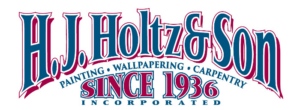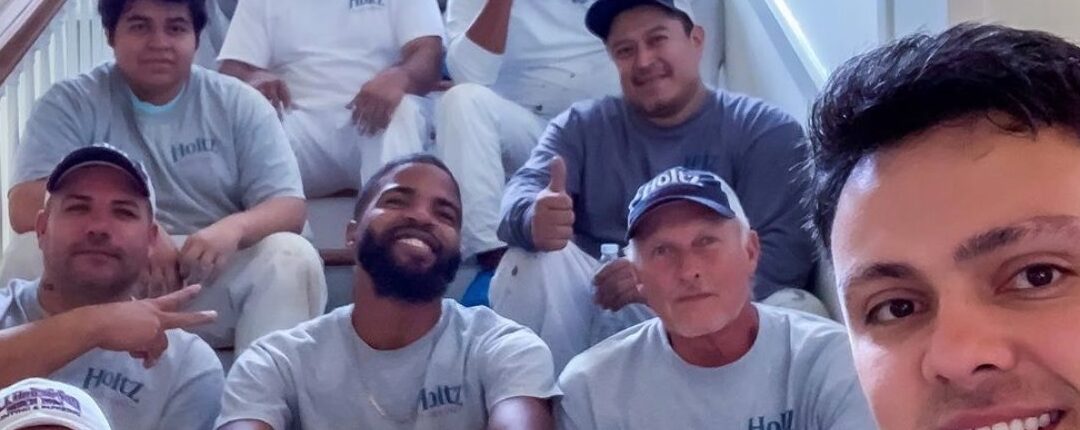H.J. Holtz & Son President Rick Holtz believes everyone in the company contributes to its success – and should share in that success, financially.
Holtz and Chad Lyons, owner of Lyons Paint & Design in Seattle, were recent guests on “Paint Radio,” a podcast sponsored by American Painting Contractor, a national magazine and resource that includes a print magazine, website, and YouTube channel, in addition to the podcast. Their topic: bonus or incentive programs for painting business employees.
“Don’t say ‘bonus,’ please,” Holtz said, noting that his plan is structured as an incentive, in order to give employees “some tooth in the game.”
Every year, Holtz said, a net profit goal is set – the amount of profit needed to keep the painting business viable and healthy. Once that target is reached, fifty percent of every net dollar goes to the incentive fund, with the other fifty percent remaining in the company coffers.
First introduced five years ago, the plan took some explanation. “[They] were like deer in headlights,” Holtz said. “It took about three years before people really understood it, and they had to learn to trust it, too.”
The plan is useful because it both motivates and educates employees, Holtz said, adding that employees see the firm’s profit and loss statement, so they understand what costs are fixed and what others can be trimmed.
“We talk about how to save and create efficiencies, and how going back to fix problems hurts the bottom line,” Holtz said, adding that team members now routinely come to him with suggestions for improving project flow, which benefits both customers and company.
Overall employee retention has improved since the plan was implemented, Holtz said, noting that retention also improves efficiency because new staff require training and take time to become comfortable with the company’s approach.
Every employee – except Holtz – shares in the incentive payout based on their annual compensation as a percentage of the total payroll. For example, more experienced craftspeople, foremen, and managers receive a greater percentage of the incentive payout, because their starting pay is higher. But an employee early in his career can increase his incentive payout by taking on overtime, which increases his percentage in the overall payroll pool.
“It’s not entitlement,” Holtz said.
Best of all, the better the company does, the better employees do.
“There’s no limit to how much profit they can make once we meet our [goal],” he said. “I’m a firm believer that our company, in the last five years, would not have done as well without this program.”

